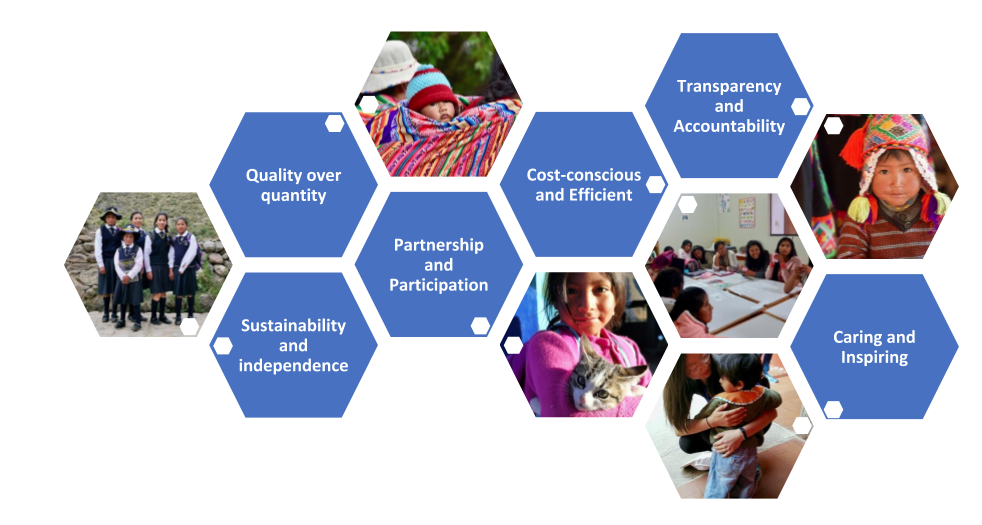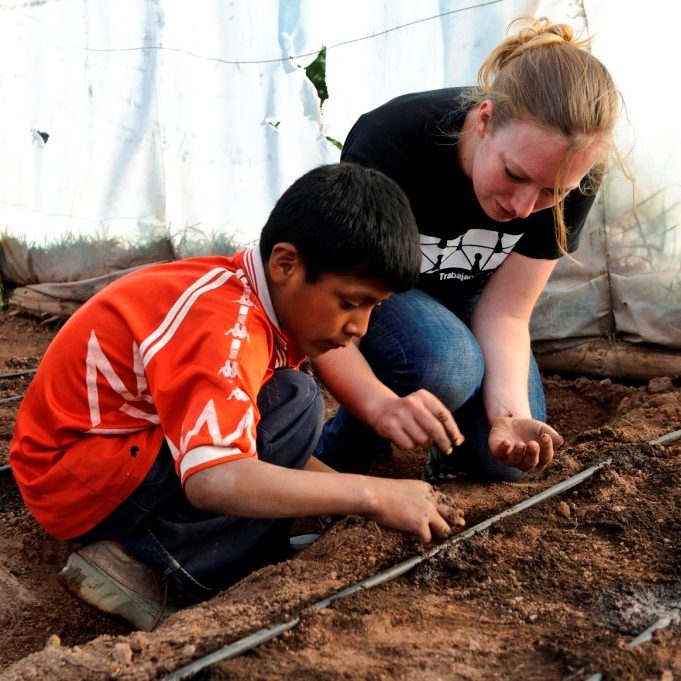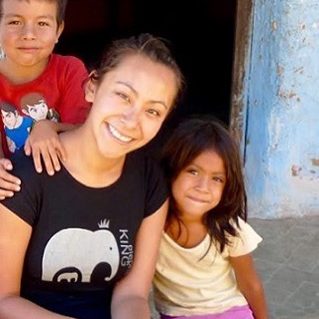About us
Latin American Foundation for the Future (LAFF) is a UK registered charity founded by Sarah Oakes. We work with local organisations in Peru that support vulnerable children in the region of Cuzco. Due to poverty, family violence, homelessness and teenage pregnancy amongst other factors, many children in Peru are lacking opportunities to access basic rights such as education and equal participation in society. LAFF choses a collaborative approach, partnering with local organisations to reach out to these children and young people, helping them to build a brighter future for themselves.
LAFF’s team is based in Cusco and currently supports four partner organisations and over 100 young people in Cusco and across the Sacred Valley region. LAFF is also a part of the ‘Semilla Nueva’ Network of NGOs in Cusco – the members of which collaborate to improve the working environment for charities operating in the Cusco region.
Our Vision:
We envision a Latin America where all children and young people have full support in accessing quality education and equal life opportunities.
Our Mission:
We work with local partners to improve our long-term ability to provide quality education and personal development to children and young people in vulnerable conditions in Peru.
History
Sarah Oakes, founder of LAFF, came to Cuzco in 2003 to work as a volunteer coordinator at a home for deaf children. The harsh reality of life for abandoned and working children in Latin America struck her deeply. During her time here she met Alcides, a former police officer that dreamt of building a house for children living on the streets. Sarah went back to the UK and decided she was going to raise enough funds to help Alcides with his vision. After such an overwhelming response from the UK community, Sarah realized there was immense potential to improve the future of many vulnerable young people in the Cuzco region, and so LAFF was born in 2008 to make this dream a reality.
Our Values

I would say the most important thing to do is to prepare for Dissertationowl how specifically you would fit in and lead at stern.



